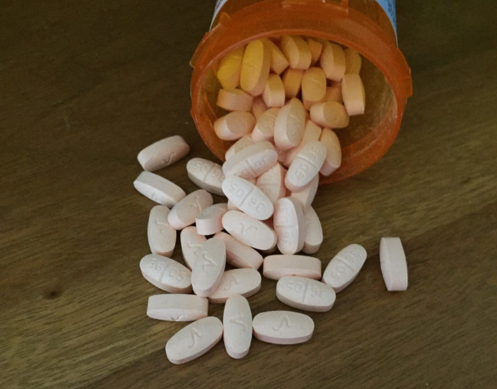This Health Care Issue Is Contributing to the U.S. Opioid Epidemic

By:
Just weeks after the Centers for Disease Control and Prevention released a report on opioid overdose rates in the U.S. — which have apparently reached epidemic levels — researchers at Boston Medical Center exposed a troubling trend in painkiller prescription practices that might be contributing to the public health crisis.
RELATED: The Connection Between Prescription Painkillers and America's Heroin Problem
A new study published in the journal Annals of Internal Medicine found that 91 percent of patients who experienced a non-fatal overdose of painkillers such as Vicodin or Oxycotin continued to receive prescriptions for the opioid-based drugs.
 Tumblr - tumblr.com
Tumblr - tumblr.com
Researchers looked at a national database of health insurance claims, collected information on more than 2,800 adult patients, and noted that those who obtained painkiller refills after surviving an overdose were also twice as likely to suffer another overdose within two years of the initial hospitalization.
"I think our results reinforce that continuing to prescribe opioids, especially at moderate or large dosages, puts patients at marked increased risk for repeated overdose and should be avoided," the study's lead author, Dr. Marc LaRochelle, told ATTN:. "However, simply stopping prescription opioids alone is not a solution — we need to identify patients with opioid use disorders, engage them in treatment, and make certain they know they are not being abandoned."
The study was not meant to "point fingers" at health care workers or any specific institution, LaRochelle added, but instead, he hoped the results would "motivate physicians, policy makers, and researchers to improve how we identify and treat patients at risk of opioid-related harms before they occur."
The study comes at an important time, as the U.S. attempts to understand and respond to rising rates of prescription painkiller abuse. The CDC recently reported that opioid-based overdose rates — including both painkillers and heroin — in the country had increased by about 200 percent between 2000 and 2014.
Many experts have regarded the country's current heroin dilemma as a product of the over-prescribing of painkillers. Because heroin is cheaper and more potent than painkillers, people who become addicted to the legal drug sometimes seek out heroin when their prescription runs out.
RELATED: New Report Reveals Shocking Statistics on the Growing Heroin Epidemic
"To reverse the epidemic of opioid drug overdose deaths and prevent opioid-related morbidity, efforts to improve safer prescribing of prescription opioids must be intensified," the CDC reported. "Opioid pain reliever prescribing has quadrupled since 1999 and has increased in parallel with overdoses involving the most commonly used opioid pain relievers."
